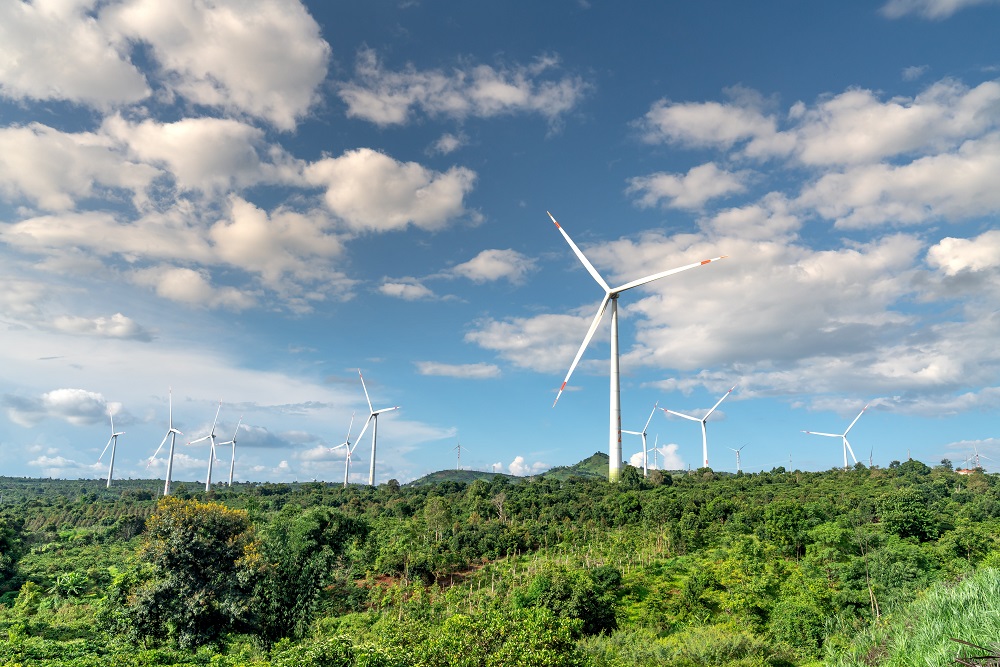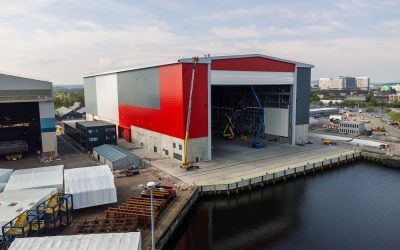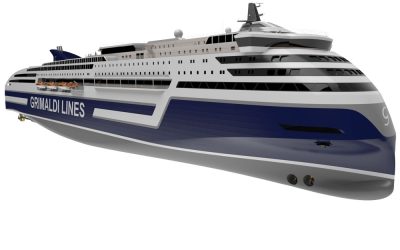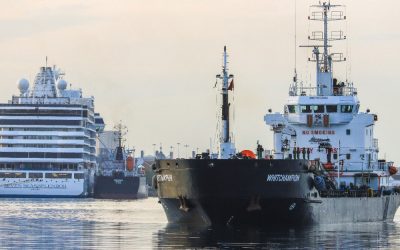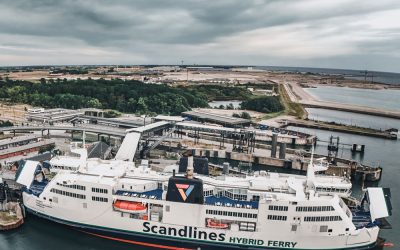The Maersk Mc-Kinney Møller Center for Zero Carbon Shipping (MMMCZCS) has published the methodology for its life cycle assessment (LCA) for calculating the GHG intensity of maritime fuels, in what it hopes will be a turning point in arriving at a standardised approach.
Although by no means a problem that’s unique to shipping, it’s generally agreed that the absence of a consistent, standardised approach to LCA methodology is one of the major stumbling blocks with regard to calculating maritime’s GHG emissions and with it progress towards decarbonisation. IMO formally adopted its own LCA Guidelines (Resolution MEPC.376(80) in July 2023, however there are no corresponding policy instruments at this time and the Carbon Intensity Indicator (CII) only assesses tank-to-wake (TTW) emissions.
Moreover, as an April 2023 study by Washington DC-based thinktank the International Council on Clean Transportation (ICCT) noted that even supposedly clean fuels – e.g. green hydrogen and methanol produced using renewable electricity – can result in indirect emissions from grid-average electricity that escalate the GHGs generated from these pathways to roughly twice the emissions of conventional marine fuel.
Gilded in the rhetoric of allowing fuel suppliers “to identify the sources of emissions and thus enable them to improve their processes”, the MMMCZCS methodology sets out to address these upstream ambiguities and is grounded firmly in the well-to-wake (WTW) approach, while adding flesh to the IMO Guidelines.
MMMCZCS has created two documents to support the methodology: a policy document providing an overview of the guiding principles that form the foundation of the MMMCZCS LCA methodology, and a complementary technical document providing a more detailed, step-by-step guide to implementing it.
The policy document begins by explaining the scope of the MMMCZCS LCA methodology, defining five key life cycle stages for marine fuels – from feedstock extraction through onboard fuel utilisation – with defined system boundaries. Based on extensive consultation with any processes, materials or stages that are determined to contribute more than one percent to the overall environmental impact are deemed significant and factored in.
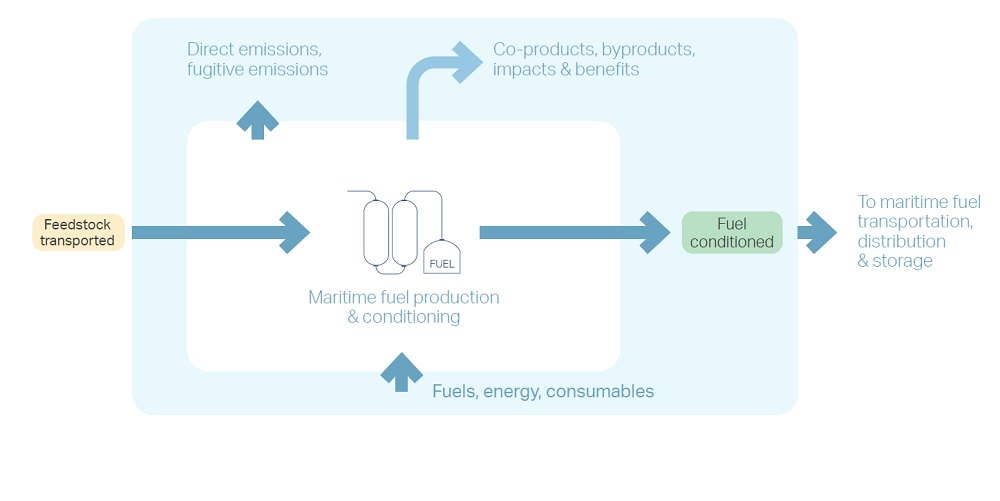
System boundary description for fuel production and conditioning stage (life cycle stage 2). Source: MMMCZCS
It then outlines how climate impact and GHG emissions are calculated in the methodology, before an overview of the well-to-tank (WTT) emissions inventory details for three main alternative fuel categories: biofuels, e-fuels, and blue fuels. Users of the methodology are expected to select the WTT activities relevant to their particular fuel production from the emissions inventory. Any potential emissions credits are also specified.
A separate section then details the tank-to-wake (TTW) emissions inventory. Specific guidance is also offered on handling emissions and credits from carbon capture and storage (CCS) or the use of biogenic CO2, which may be relevant for a variety of fuel pathways. The document concludes with guidance on how results generated using the methodology should be interpreted and then reported according to the ISO 14067:2018 standard.
In conclusion, MMMCZCS hopes the policy document “offers a high-level overview suitable for policymakers and others involved in fuel regulations… [serving as] as a guiding beacon, highlighting the essential principles underpinning this methodology” with a view to driving the industry’s fuel transition strategy.
The full documents can be downloaded from the MMMCZCS website
